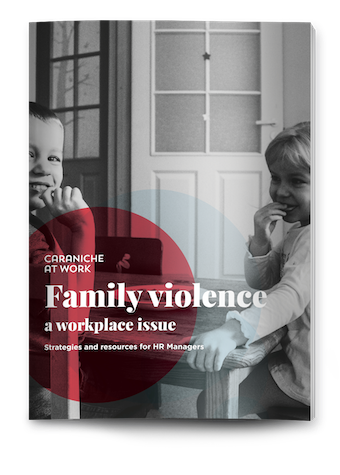
Spotlight on self-care
Self-care helps us to refuel when we’re feeling depleted, navigate our emotions, and cope when we’re feeling overwhelmed or stressed.
Read more
Explore our insights into employee wellbeing and workplace health, as well as resources for employees and employers.

Self-care helps us to refuel when we’re feeling depleted, navigate our emotions, and cope when we’re feeling overwhelmed or stressed.
Read more
Australian workplaces are waking up to the impact of family violence. Caraniche at Work has developed a free report for HR Managers who want to take the lead.